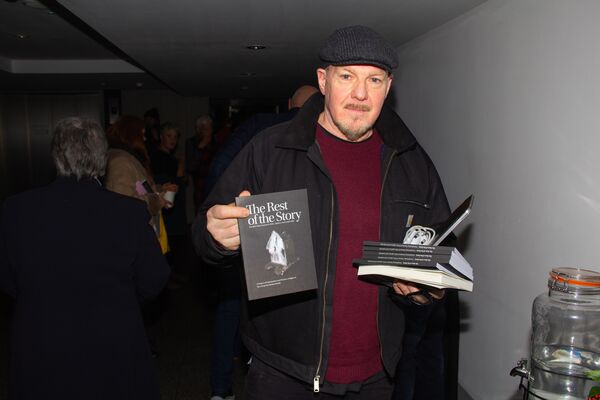The legendary jazz trumpeter Miles Davis was a perfectionist when it came to jazz. He once told Herbie Hancock who had played a bad note “when you hit a bad note, it’s the next note you play that determines if it’s good or bad.”
How many times does our perception of getting something wrong prevent us from continuing.
I remember when I began mindfulness practice, I had the sense that I was getting it wrong and when that feeling comes around we usually want to throw the towel in.
Thankfully, I was and still am blessed with an excellent teacher who is aware of this self-criticism and is able to steer me into a kindness practice that I need to practice on myself first — a simple format that tells me to keep it simple.
I’ve got a PhD on being hard on myself but through the gift of loving kindness towards myself and others, I’ve discovered that I’ve also got a PhD in kindness, generosity and gratitude too. I’ve discovered that this comes from not judging.
There's always tomorrow. And whether the day was good or bad, there are a million effects which can arise from one event. Good and bad are interconnected.
Zen has a rich tradition of storytelling. Actually, just about the entire human race has a rich history of storytelling. Why do we like stories so much? Because we can identify with them. Stories, whether real or not, pull and tug at our emotions. We connect personally with stories.
I remember hearing the following story for the first time and it blew my mind.
Once upon the time there was an old farmer who had worked his crops for many years. One day his horse ran away. Upon hearing the news, his neighbors came to visit. “Such bad luck,” they said sympathetically.
“Maybe,” the farmer replied.
The next morning the horse returned, bringing with it three other wild horses. “How wonderful,” the neighbors exclaimed.
“Maybe,” replied the old man.
The following day, his son tried to ride one of the untamed horses, was thrown, and broke his leg. The neighbors again came to offer their sympathy at his misfortune.
“Maybe,” answered the farmer.
The day after, military officials came to the village to draft young men into the army. Seeing that the son’s leg was broken, they passed him by. The neighbors congratulated the farmer on how well things had turned out.
“Maybe,” said the farmer.
The farmer is practicing non-judgment. He understands the true nature of life, that you can't judge any event as an end. Our life doesn't play out like a work of fiction. There aren't definite breaks that separate one moment versus another, and there isn't a perfectly formulated end which everything builds to.
There's always tomorrow. And whether the day was good or bad, there are a million effects which can arise from one event. Good and bad are interconnected. They are, in fact, two sides of the same coin. If things seem perfect, they aren't. If it seems like it's armageddon in your corner of the world, it's not. Things can change in an instant, at all times. And they will at some point or another.
This doesn't mean that we can't be happy. On the contrary, it means that we need to realise this truth and live in a way that we're constantly aware of it in order to find peace and happiness. Don't let this change the way you live too much just yet, though.
For now, just think on it, observe your life through the lens of this infinitely co-arising universe. This act in itself can bring you a great sense of peace and remember what Miles said to Herbie,” It’s the next note you play that determines, if it’s good or bad”
Here’s the simple practice that I was taught to develop loving kindness.
Begin by settling yourself into a dignified upright position. Notice where your attention is right now. Are you planning, remembering, avoiding? Notice and gently, with kindness, bring your attention to your body.
Notice contact with your clothing against your skin the temperature of your room.
Now bring your attention to your breath and notice how you breathe—no right way, no wrong way, allow your attention to rest on your breath, see if you can notice where your in-breath begins and where your in-breath ends, then notice where your out-breath begins and where your out-breath ends.
Notice the quality of your breath, now recite the following to yourself 3 times:
May I be happy.
May I be healthy.
May I be free from suffering and the causes of suffering.
Now bring to mind someone close to you who makes you feel good, and again recite, 3 times.
May, ( mention their name) be happy.
May, ( mention their name) be healthy.
May, ( mention their name ) be free from suffering and the causes of suffering.
Now last but not least, bring to mind someone who you are having difficulties with, and again recite 3 times the following.
May, ( mention their name) be happy.
May, ( mention their name) be healthy.
May, ( mention their name) be free from suffering and the cause of suffering.
Give it a try and remember to keep it simple — it works, if you work it.








